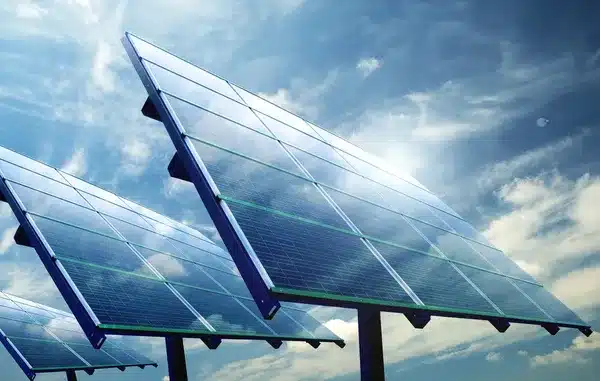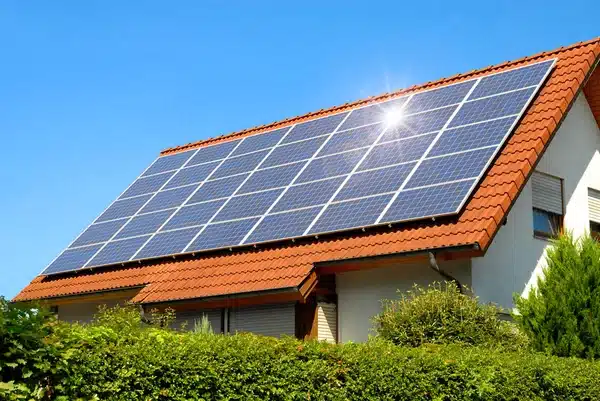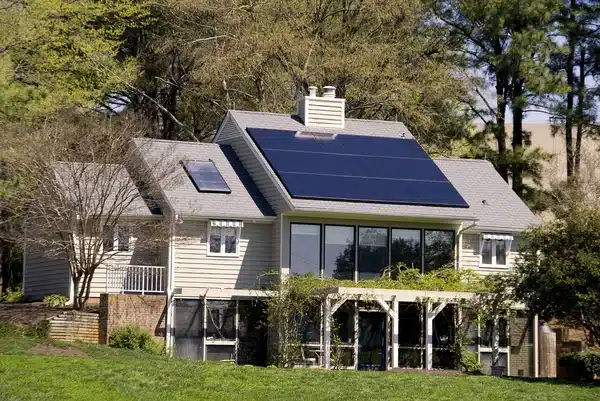Reliable & Cost-Effective Shipping from China
Tailored Logistics Solutions for Your Business
Comprehensive Guide to Importing and Shipping Solar Panels from China
- L. Liu
As the world increasingly shifts toward renewable energy, solar panels have become a key investment for businesses and homeowners looking to embrace sustainability and reduce energy costs. China, as the global leader in solar panel manufacturing, stands out for its high-quality products, competitive pricing, and cutting-edge technology. Whether you’re a distributor, installer, or end-user, importing solar panels from China can significantly boost your profit margins while contributing to the green energy revolution.
This guide provides an in-depth look at the entire process of importing and shipping solar panels from China. From selecting reliable suppliers to navigating import regulations, calculating shipping costs, and understanding logistics options, this comprehensive resource equips you with the knowledge to make informed decisions. With the inclusion of Tonlexing’s professional logistics services, you’ll also learn how to streamline your shipments, ensuring safe and timely delivery to your destination.
Solar panels are not just an investment in renewable energy; they’re a commitment to a sustainable future. As you explore this guide, you’ll discover why China remains the top destination for solar panel imports and how to optimize your procurement and shipping process. Whether you’re new to importing or a seasoned professional, this guide will serve as your roadmap to success.

Table of Contents
Why Import Solar Panels from China?
1. Competitive Prices
China’s massive manufacturing industry enables suppliers to offer solar panels at highly competitive prices. Due to lower labor and production costs, solar panels manufactured in China are often 20-30% cheaper compared to those produced in other regions. This makes importing from China an attractive option for businesses looking to reduce costs and maximize their profit margins.
2. Wide Range of Products
China offers a wide variety of solar panels, ranging from monocrystalline and polycrystalline panels to thin-film options. You can choose from different wattages, efficiencies, and designs, giving you the flexibility to select products that best fit your needs. This diversity is ideal for both residential and commercial projects.
3. Technological Advancements
China has made significant technological advancements in solar energy. Many manufacturers are committed to improving efficiency and durability through cutting-edge R&D. Importing solar panels from China means gaining access to the latest innovations, which can lead to increased efficiency and better product performance.
4. Scalable Production
Chinese manufacturers can meet high-volume orders due to their large-scale production capacity. Whether you need a few hundred panels or several megawatts worth of panels, China can accommodate your requirements. This scalability makes it easier to manage larger projects and ensure consistency in product quality.
Finding Reliable Suppliers
1. Online Platforms
The most common way to find suppliers is through online B2B platforms like Alibaba, Made-in-China, and Global Sources. These platforms allow you to compare products, read reviews, and communicate directly with manufacturers. Ensure to look for verified suppliers with positive reviews and strong ratings.
2. Trade Shows
Attending trade shows is another effective way to connect with suppliers. Events like the Canton Fair and SNEC PV Power Expo provide opportunities to meet manufacturers in person, assess product quality, and negotiate terms. Face-to-face interaction helps build trust and establish long-term business relationships.
3. Factory Visits
If possible, visiting the factory is an excellent way to verify the credibility of the supplier. A factory visit will allow you to assess the manufacturing processes, quality control measures, and the overall capabilities of the supplier. This step is particularly important if you are placing a large order.
4. Checking Certifications
Ensure that the supplier has all necessary certifications, such as ISO 9001 for quality management and IEC standards for solar panel performance. These certifications indicate that the supplier follows global standards, ensuring the reliability and efficiency of the solar panels.
Key Considerations Before Importing
1. Product Specifications
Before importing, make sure you have clear product specifications. Determine the type of solar panel you need, the power output, and any specific features required for your project. Detailed specifications will help you find the right supplier and avoid misunderstandings.
2. Import Regulations and Duties
Every country has different import regulations and duties for solar panels. It is important to understand the HS code (usually 854140) for solar panels and calculate the applicable import duties and taxes. In some countries, solar panels may be exempt from duties or taxed at a lower rate as part of renewable energy initiatives.
3. Compliance and Certifications
Ensure that the solar panels comply with the import regulations of your country. Check for necessary certifications such as CE, TUV, and UL to ensure the panels meet quality and safety standards. Non-compliant products may be refused entry or face penalties.
4. Currency Exchange Rates
Currency exchange rates can impact your total import costs. Since transactions are typically in USD, it’s advisable to monitor exchange rate trends and consider using a hedging strategy to manage potential fluctuations.

Shipping Solar Panels from China
1. Shipping Methods
You have two main shipping options when importing solar panels from China: sea freight and air freight. Each has its advantages, depending on your needs.
Sea Freight: Sea freight is the most economical option, particularly for large shipments. It takes longer but significantly reduces costs per unit. Sea freight is ideal for orders that are not time-sensitive.
Air Freight: Air freight is much faster but more expensive. This option is suitable for smaller shipments or urgent deliveries where time is a priority.
2. Container Shipping
Most solar panels are shipped via 20ft or 40ft containers. Depending on the quantity, you may choose between FCL (Full Container Load) or LCL (Less than Container Load).
FCL: If you are importing a large number of solar panels, booking a full container is cost-effective and provides better security for your goods.
LCL: For smaller shipments, LCL allows you to share container space with other importers. Although cheaper than air freight, LCL may involve longer handling times.
3. Shipping Costs
Shipping costs depend on several factors, including volume, weight, and the distance between the port of origin and destination. It is important to get quotes from multiple freight forwarders to find the best rates. Additional charges may include port fees, customs brokerage, and insurance.
Tonlexing Freight Forwarding Services: Tonlexing offers competitive shipping rates and comprehensive services for importing solar panels from China. Our team ensures that your goods are shipped efficiently while handling all customs documentation and clearance.
Shipping Costs for Solar Panels from China to Different Regions
Shipping costs for solar panels from China vary based on the destination region, shipping method, volume, and current market conditions. Below is an overview of estimated shipping costs to different regions:
| Region | Shipping Method | Estimated Cost | Transit Time |
|---|---|---|---|
| North America | Sea Freight | $4,500–$6,500 (40HQ) | 20–35 days |
| Air Freight | $4.5–$6.5 per kg | 5–10 days | |
| Europe | Sea Freight | $3,500–$5,500 (40HQ) | 25–40 days |
| Rail Freight | $2,800–$3,800 (40HQ) | 15–25 days | |
| Africa | Sea Freight | $5,500–$7,500 (40HQ) | 30–45 days |
| Asia | Sea Freight | $1,800–$3,800 (40HQ) | 7–15 days |
| Air Freight | $3.5–$5.5 per kg | 3–7 days | |
| Oceania | Sea Freight | $3,800–$5,800 (40HQ) | 15–25 days |
Please note that these are estimated costs and can fluctuate based on factors such as fuel prices, seasonal demand, and global shipping conditions. It’s advisable to consult with a professional logistics provider like Tonlexing to obtain accurate and up-to-date shipping quotes tailored to your specific needs.
Customs Clearance and Documentation
1. Key Documents
To successfully clear customs, you will need the following documents:
Commercial Invoice: Details the value, quantity, and description of the solar panels.
Packing List: Lists the contents of the shipment, including dimensions, weight, and packaging details.
Bill of Lading (B/L): A document issued by the carrier to acknowledge receipt of cargo.
Certificate of Origin: Indicates the country where the solar panels were manufactured.
2. Role of Customs Broker
A customs broker can help facilitate the customs clearance process, ensuring that all documentation is in order and that duties and taxes are paid. Hiring an experienced customs broker can help you avoid potential delays or penalties.
3. Duties and Taxes
Calculate and pay applicable duties and taxes based on your country’s import regulations. Be sure to check if your country offers any exemptions or reduced rates for renewable energy products like solar panels.
Delivery and Final Distribution
1. Local Transportation
Once the shipment arrives at the destination port, you will need to arrange local transportation to move the panels to your warehouse or installation site. Depending on the volume, this could involve trucks or trailers.
2. Warehousing
If you do not plan to install the solar panels immediately, consider warehousing options. Solar panels require careful handling and storage to prevent damage. Choose a warehouse that is dry, well-ventilated, and capable of safely storing the panels.
Tonlexing Warehousing and Distribution: Tonlexing offers warehousing services to store your solar panels safely until they are ready for installation. We also provide distribution services to ensure efficient delivery to your site.

Tips for a Successful Import Experience
1. Verify Supplier Credentials
Always verify the supplier’s credentials, including certifications, past clients, and quality control processes. Look for suppliers with a proven track record of exporting solar panels to your country.
2. Negotiate Payment Terms
Negotiate payment terms that work for both parties. Letter of Credit (L/C) is commonly used in international trade to protect both buyer and seller. Consider splitting the payment into milestones, such as 30% upfront and 70% upon delivery.
3. Insurance
Invest in cargo insurance to protect your shipment against potential loss or damage during transit. Insurance gives you peace of mind, especially when dealing with high-value items like solar panels.
4. Plan for Lead Times
Plan your shipments well in advance, especially if opting for sea freight. Lead times can vary, and delays may occur due to unforeseen circumstances. Account for potential delays when planning your project timeline.
5. Partner with an Experienced Freight Forwarder
Working with an experienced freight forwarder like Tonlexing can simplify the import process. Tonlexing provides end-to-end services, from pickup in China to final delivery, ensuring a smooth shipping experience. Our team takes care of all logistics, customs clearance, and documentation, allowing you to focus on your core business activities.
Frequently Asked Questions
Q: How can I ensure the quality of the panels I import?
A: Use trusted suppliers, request samples, and conduct pre-shipment inspections.
Q: What is the average lifespan of solar panels?
A: Most solar panels last 25–30 years with proper maintenance.
Q: Can I ship solar panels by air?
A: Yes, but it’s suitable for small shipments or urgent orders.
Q: How do I handle customs clearance?
A: Tonlexing’s customs brokers ensure smooth and timely clearance.
How Tonlexing Can Help You Import Solar Panels from China
1. End-to-End Shipping Solutions
Tonlexing offers a complete range of logistics services to help you import solar panels from China efficiently. From supplier coordination and freight forwarding to customs clearance and final delivery, we handle every aspect of the process.
2. Competitive Shipping Rates
We work with leading carriers to offer competitive shipping rates for both sea and air freight. Our partnerships allow us to provide cost-effective solutions without compromising on service quality.
3. Expertise in Renewable Energy Products
With extensive experience in handling renewable energy products, Tonlexing understands the specific requirements of shipping solar panels. Our expertise ensures that your panels are transported safely and in compliance with all regulatory standards.
4. Personalized Customer Support
Our dedicated account managers provide personalized support throughout the shipping process. Whether you need assistance with documentation, customs clearance, or delivery arrangements, our team is here to guide you every step of the way.
Importing and shipping solar panels from China can be a cost-effective way to access high-quality renewable energy products. By understanding the key considerations, choosing reliable suppliers, and working with an experienced freight forwarder like Tonlexing, you can streamline the import process and ensure a successful outcome.
At Tonlexing, we are committed to providing comprehensive shipping solutions tailored to your needs. Whether you are importing solar panels for a residential project or a large-scale commercial installation,

